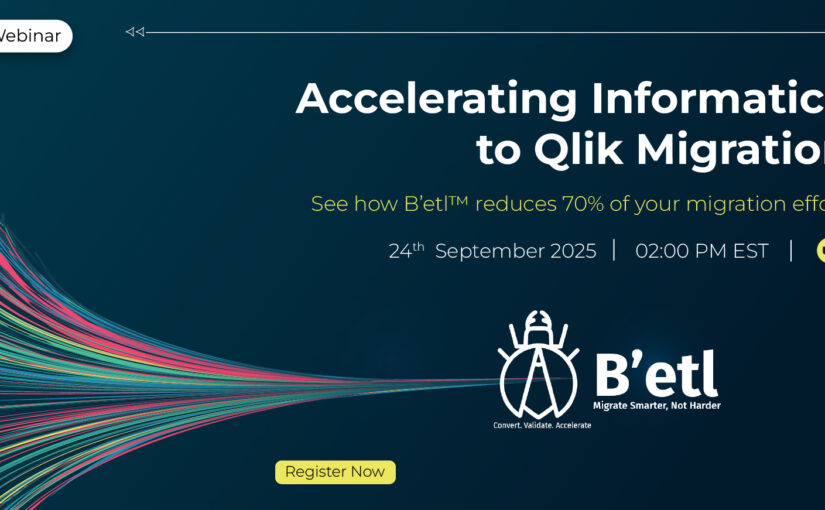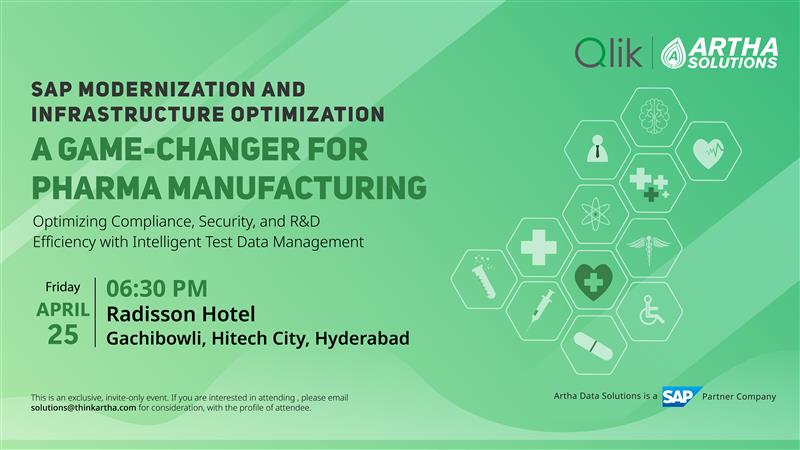Manufacturing is entering a new era where artificial intelligence (AI) and machine learning are taking central stage to gain maximum productivity. CIOs in the manufacturing sector are excited by visions of predictive maintenance, AI optimizers tweaking processes, and autonomous systems driving efficiency gains. The strategic key to turning this vision into reality, however, lies beneath the surface: data infrastructure and governance must be rock-solid before Day Zero of any AI deployment.
In practice, that means laying a foundation of high-quality, integrated, and well-governed data even before an AI project kicks off. Skipping this groundwork can spell trouble – industry research shows that many AI initiatives falter due to data issues, not algorithm flaw.1,2 This narrative will explore how preparing data from the outset enables AI-powered production optimization to deliver on its promise, and how Artha Data Solutions is helping manufacturers bridge IT/OT divides and unlock competitive advantages through ready-to-use, reliable data.
The Promise of AI in Manufacturing and the Data Dilemma
The potential of AI in manufacturing is no more a buzzword. From AI-driven process control that continuously tunes equipment for optimal performance, to machine learning models that predict quality issues or maintenance needs, the rewards include higher throughput, lower costs, and improved quality. For example, a Tier 2 automotive supplier doubled the throughput of a production line with an AI-based system that identified bottlenecks in real time.3 In heavy industries like cement and chemicals, AI optimizers have demonstrated double-digit performance improvements without new hardware – boosting yield and energy efficiency in mere months.4,5 Clearly, AI can be transformative on the factory floor.
Yet, these gains are only achievable if the underlying data is trustworthy and accessible. In fact, lack of data readiness is one of the biggest roadblocks for AI in manufacturing. Surveys show up to 80% of AI projects fail to move beyond pilot stages, with poor data quality and siloed data infrastructure often to blame.6,7 Gartner analysts predict that at least 30% of AI projects will be abandoned at proof-of-concept by 2025 due to issues like subpar data quality and inadequate data governance.1 The message is clear: no matter how advanced the AI, it cannot fix fragmented or dirty data. As one expert aptly put it, “As soon as you think you are ready to adopt AI technology, pause and evaluate your data’s quality, structure and volume”.8 Before algorithms start optimizing anything, CIOs must ensure their house is in order – data from across the plant and enterprise must be clean, consistent, and unified.
Before Day Zero: Building the Data Foundation for AI
Day Zero refers to the moment an AI initiative formally begins – but the real work should start well before that. Laying a strong data foundation involves multiple strategic steps:
- Data Audit and Cleaning: Begin with a thorough audit of existing data sources (sensor streams, production logs, MES/ERP databases, etc.). Identify errors, gaps, and inconsistencies. It’s crucial
to fix data quality issues upfront – AI models are infamous for “garbage in, garbage out.” By cleansing and standardizing data early, manufacturers avoid feeding AI systems with misleading information. For AI systems to function optimally, the data must be clean, consistent, and error-free. This includes aligning units, timestamps, and definitions across sources.9
- Integration of Siloed Systems (IT/OT Convergence): Most factories have a split between operational technology (OT) on the shop floor and information technology (IT) in business Bridging this divide is essential. Integrating real-time machine data with enterprise data gives AI a holistic view of operations. In fact, 56% of manufacturers cite lack of data integration as a major barrier to digital transformation.10 An integrated data architecture (data lakes, IIoT platforms, or unified databases) should be established so that all relevant data – from PLC sensors to quality labs to inventory systems – flows into a common ecosystem. This IT/ OT convergence “creates a unified platform for data exchange and analysis”, empowering real-time production insights and resource optimization.11 Manufacturers that connect their disparate systems can monitor equipment performance in context, correlate process parameters with yield, and enable AI to uncover patterns spanning the entire production value chain.
- Data Governance and Master Data Management: Preparing data isn’t just a technical exercise; it’s also organizational. Companies need to institute data governance policies and roles to manage data as a strategic asset. This means defining data ownership (who is responsible for which data sets), setting up data quality KPIs, and ensuring compliance with standards (for example, calibration schedules for sensors or version control for control logic data). It also means creating master data definitions for key entities (products, materials, machine IDs, ) so that every system uses consistent terminology. Effective data governance underpins trust in data-driven decisions. As Artha Solutions emphasizes, “effective data governance and analytics help [manufacturers] make informed decisions, optimize supply chains, and drive innovation”.12 Governance ensures the AI initiative has well-defined, reliable data to learn from, and that any insights can be traced back to quality-controlled sources.
- Infrastructure and Architecture Readiness: Before deploying AI, CIOs should evaluate whether their data infrastructure can support the scale and speed required. AI for production optimization often involves streaming data (from IoT sensors or machines) and heavy computations. A modern, scalable architecture – whether cloud-based, on-premises, or hybrid – with proper data pipelines is critical. This might include establishing a data lake or warehouse that aggregates OT and IT data, deploying edge computing for low-latency processing on the shop floor, and setting up APIs or middleware to connect legacy systems. Security is also paramount: ensure a robust framework (even zero-trust architectures) to protect sensitive production data as it flows to AI systems. The goal is a resilient plumbing of data such that from Day Zero, data is continuously flowing from the factory floor to AI models and back to decision-makers, without bottlenecks or security gaps.
By addressing these areas before AI implementation begins, organizations set themselves up for success. They avoid the common pitfall of AI teams spending 80% of their time wrangling data and fighting quality issues after the project is underway. Instead, the AI team can focus on model development and analysis from Day One, because the data foundation is already in place. The payoff is dramatic: companies that put in the prep work have seen their AI projects deliver value faster and more smoothly than those that rushed in unprepared.2,7
Bridging IT and OT: The Key to Unified Insights
One aspect deserving special attention is IT/OT convergence – the blending of information technology systems with operational technology systems. In many manufacturing environments, decades-old OT systems (SCADA, PLCs, DCS, historians) run the production processes, while modern IT systems (ERP, MES, QMS, etc.) manage business processes. AI-powered optimization demands that these layers talk to each other. When IT and OT remain isolated, data vital to optimization is trapped in silos. For example, the maintenance department might have vibration sensor readings that never get correlated with production schedules from ERP, or quality measurements in a lab database that aren’t linked to the specific machine settings that produced those batches.
Bridging IT and OT unlocks real-time, end-to-end visibility. By connecting shop-floor sensors and control systems with enterprise data, CIOs can give AI models the full context needed to make intelligent decisions. The benefits of this unified data are tangible – manufacturers gain “real-time insights into production processes, optimize resource utilization, boost productivity through automation, and reduce operational costs” through IT/OT integration.11 Imagine an AI system that not only detects an anomaly in machine performance from sensor data, but also cross-references it with maintenance logs and inventory data to recommend a proactive fix and ensure spare parts are on hand. Without IT/OT integration, such holistic optimization is impossible.
Artha Data Solutions recognizes that bridging this gap is often the prerequisite of successful industrial AI. Artha specializes in data integration across the value chain, effectively linking factory floor devices with cloud analytics and enterprise apps. By deploying robust data management platforms, connectors, and IoT frameworks, Artha helps manufacturers create a single source of truth. In practice, this might involve streaming data pipelines that pull readings from PLCs on the line into a central data lake, where they are merged with MES production records and even contextual data like ambient conditions or operator shifts. The outcome is a rich dataset ready for AI consumption. Notably, manufacturers that centralize and analyze previously fragmented data can significantly improve production efficiency and quality – centralizing data improves throughput and quality while data governance ensures those insights drive smart decisions.12 Bridging IT/OT isn’t just an IT project; it’s a strategic initiative that yields a competitive edge by enabling AI to act on complete, timely information.
Accelerating AI Adoption with Artha Data Solutions
Establishing this data foundation can be complex, which is where experts like Artha Data Solutions come in. Artha’s vision is firmly grounded in the idea that AI success starts with data readiness. As the company puts it, “Your AI vision starts with the right foundation — your data”, and they offer intelligent data management solutions to ensure data is “AI-ready” for integration.13 In practical terms, Artha provides services and tools that cover the end-to-end preparation of data for AI:
- Data Quality & Consistency: Artha’s data readiness framework includes rigorous data auditing, cleansing, and validation steps. They help manufacturing clients identify inconsistencies across datasets and rectify errors so that AI models can train on high-quality By ensuring clean, reliable data from the outset, Artha reduces the risk of AI models producing skewed or inaccurate results due to garbage data.8,14
- Data Integration & Single Source of Truth: Artha specializes in integrating disparate data sources – whether from legacy systems, modern IoT sensors, or enterprise applications. Their expertise in master data management (MDM) and data lakes/cloud platforms allows companies to unify their information For a manufacturer, this means bridging systems
across the entire value chain: design, production, maintenance, supply chain, and distribution. The result is an integrated data backbone where AI applications can draw insights from every stage. As evidence of this approach, Artha helped a leading energy company aggregate and model data across domains, improving data quality and enabling optimized processes enterprise-wide.15 In manufacturing contexts, such integration can, for example, tie raw material quality data to production parameters to find optimal settings, or connect customer demand forecasts with factory scheduling to intelligently adjust throughput.
- AI-Ready Governance & Compliance: Knowing that industrial data often spans various formats and may be subject to compliance (safety standards, regulatory reporting, etc.), Artha implements robust data governance frameworks tailored for This includes setting up data access controls, audit trails, and compliance checks before AI deployment. With Artha’s help, organizations put in place automated data monitoring and governance policies to maintain data integrity over time.16,17 This not only keeps the AI inputs reliable as new data streams in, but also ensures that scaling AI across multiple plants or lines meets both internal and external data regulations. Secure, governed data means AI projects won’t be derailed by privacy breaches or compliance issues down the road.
- IT/OT Convergence Solutions: Crucially, Artha brings deep experience in bridging operational tech with enterprise IT. Through industrial connectivity solutions, they help capture real-time shop floor data (from sensors, machines, SCADA systems) and funnel it into analytics platforms. At the same time, they integrate relevant enterprise context (like production orders or inventory levels) so that AI models see the full picture. This IT/OT bridging is core to Artha’s value proposition – effectively, they act as the architects of the digital thread that connects equipment to analytics to business outcomes. With that thread in place, manufacturers can accelerate AI adoption because the data hurdles between operations and IT have been In one example, Artha’s integration of real-time data management allowed a client to monitor equipment health live and predict maintenance needs, reducing downtime and ensuring continuous production.18
The competitive advantages of partnering with Artha are evident. Companies get to leverage Artha’s proven methodologies and accelerators (such as their Data Insights Platform and Dynamic Ingestion Framework) to jump-start their AI journey rather than reinventing the data wheel. This means faster time-to-value for AI projects and higher ROI. In fact, organizations that properly prepare their data see returns much sooner – a recent global survey found 74% of enterprises using AI (e.g., generative AI) achieved ROI within the first year.19 Artha’s services directly contribute to such rapid ROI by front- loading the heavy lifting of data preparation. When it’s time to deploy AI, everything runs smoother: models train faster, insights are more accurate, and users trust the outputs because they know the data is sound. In short, Artha Solutions acts as the bridge between IT and OT and between raw data and AI- driven value, enabling manufacturers to accelerate AI adoption with confidence.
Conclusion: Data-Driven Future for CIOs in Manufacturing
AI-powered production optimization is no longer science fiction – it’s happening now, and it is poised to define the future of manufacturing. However, the difference between AI projects that flourish and those that flounder often comes down to the unsung groundwork: data infrastructure and governance. CIOs aiming to lead their manufacturing organizations into this AI-driven future must act strategically and proactively. Before plugging in the first AI solution, ensure your data house is in order – integrate your systems, clean your data, govern it well, and engage partners who can bring best practices to this preparation phase. As we’ve discussed, the payoff from this diligence is substantial: faster
implementation, quicker ROI, and AI solutions that actually deliver on their potential for throughput and efficiency gains.
Artha Data Solutions envisions exactly this kind of data-first acceleration of AI adoption. By focusing on data quality, integration, and readiness across the value chain, they enable manufacturers to leap ahead, turning months of tentative AI experimentation into weeks of tangible results. They help bridge the perennial gap between IT and OT, ensuring that advanced analytics and AI can be applied seamlessly from the shop floor to the top floor. The competitive advantage for organizations that get this right is significant – they can respond in real time to operational issues, continuously improve processes with AI insights, and even innovate new business models (such as predictive maintenance services or mass customization) grounded in data. Meanwhile, laggards who ignore the data foundation risk struggling with AI projects that never quite reach fruition.
In essence, the journey to AI-powered production optimization should begin with a clear roadmap for data. CIOs are in a unique position to champion this effort, aligning both the technical and governance aspects needed for success. The manufacturing leaders of tomorrow will be those who invest in these capabilities today. Prepare your data before Day Zero, and you prepare your organization for a future of AI-driven efficiency and excellence. With strong data foundations and the right partners like Artha Solutions, the factory of the future – one where AI and humans work in harmony to achieve peak performance – is well within reach.
Reference:
1,2,6,7,14,19 What’s Preventing CIOs From Achieving Their AI Goals?
https://www.cio.inc/whats-preventing-cios-from-achieving-their-ai-goals-a-26640
3 Industry Insights: A3 Industry Insights | AI in the Real World: 4 Case Studies of Success in Industrial Manufacturing
https://www.automate.org/ai/industry-insights/ai-in-the-real-world-4-case-studies-of-success-in-industrial-manufacturing
4,5 AI in Production A Game Changer For Manufacturers With Heavy Assets | PDF | Artificial Intelligence | Intelligence (AI) & Semantics
https://www.scribd.com/document/424713822/AI-in-Production-a-Game-Changer-for-Manufacturers-With-Heavy-Assets
8 The AI-native generation is here. Do not get left behind | CIO
https://www.cio.com/article/3990726/the-ai-native-generation-is-here-dont-get-left-behind.html
9,13,16,17 Data Readiness – Artha Solutions
https://www.thinkartha.com/data-readiness/
10,11 IT/OT Convergence in Manufacturing: Steps to Achieve a Smart Factory – Matellio Inc
https://www.matellio.com/blog/it-ot-convergence-in-manufacturing/
12,18 Manufacturing – Artha Solutions
https://www.thinkartha.com/industries/manufacturing/
15 Data Governance Transformation for a Leading Canadian Energy Exporter – Artha Solutions https://www.thinkartha.com/case-studies/data-governance-transformation-for-a-leading-canadian-exporter-in-the-energy- sectors-journey/







